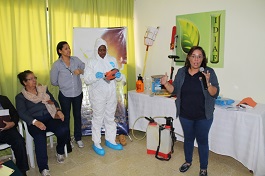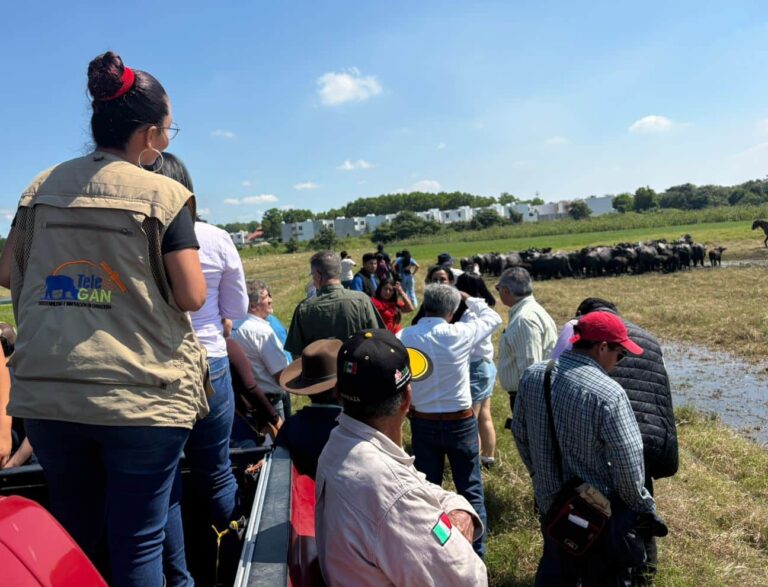The implementation of this project served to strengthen the phytosanitary systems of the country in order to be prepared to establish a permanent surveillance, which guarantees the timely detection of Moniliasis in Cocoa

Santo Domingo, Dominican Republic, March, 2018 (IICA). The Project “Strengthening of the Surveillance Capacity and Phytosanitary Emergency Response to the Introduction of the Moniliasis of Cocoa in the Dominican Republic”, implemented by the Dominican Republic Delegation of the Inter-American Institute for Cooperation on Agriculture (IICA) for a six months’ period concluded its activities successfully, fulfilling the results that had been planned under the project. This project was financed with funds from the United States Department of Agriculture through the Ministry of Economy, Planning and Development (MEPyD), and it was implemented in coordination with the Ministry of Agriculture.
The specific objectives of this project were: a) To strengthen the Phytosanitary Surveillance and Emergency Response mechanism for Moniliasis in Cocoa in the Dominican Republic; and b) To prepare a National Plan for Emergency Phytosanitary Response to detect an outbreak of Moniliasis in Cocoa in the Dominican Republic.

Espinosa give explanations on the use of
plant protection equipment

Once the Phytosanitary Emergency Response Plan for the potential introduction of Moniliasis of Cocoa was developed, two cabinet simulations were carried out in two cocoa zones in the countryside, in order to simulate emergency phytosanitary activities before the eventual introduction of the pest in the country, using the prepared Emergency Plan as a basis. At the same time, the purpose of these simulations was to evaluate the application of the Emergency Plan, to help raise the capacity of national technicians and producers to respond to the detection of the plague in the Dominican Republic.
As a final product of this project, the IICA Delegation in the Dominican Republic will, once evaluated and finalized, deliver several copies of the Phytosanitary Emergency Plan for Moniliasis of Cocoa to the authorities of the Ministry of Agriculture and public and private institutions related to the cocoa and phytosanitary subsectors.
More information: Hector Garibaldis Perez, Specialist in Agribusiness, hector.perez@iica.int











